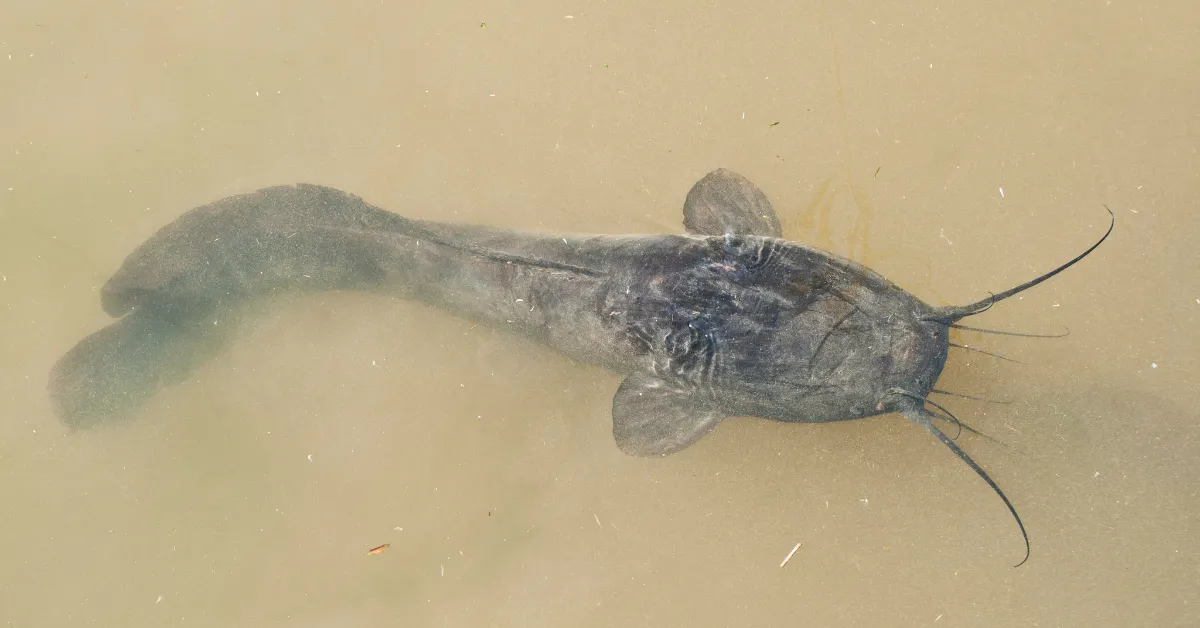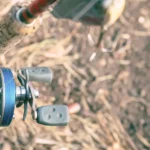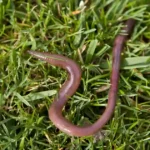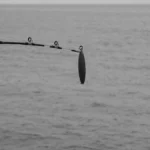Yes, murky water fish bite. Although murky water reduces sight, many fish use scent and lateral lines to find food. Vibrating or scented bait or lures might help you capture fish in dirty water.
![Do Fish Bite in Muddy Water? [Muddy Water]](https://fishingsaga.com/wp-content/uploads/2023/09/Muddy-Water-1024x536.webp)
Innumerable people all around the globe take pleasure in fishing. No matter how long you’ve been fishing or how much experience you have, you’ve been asked the age-old question, “Do fish bite in muddy water?” In this article, we’ll examine this exciting issue in detail, busting fishing misconceptions and sharing insider tips for catching fish when circumstances are less than perfect.
Understanding Muddy Water
Cloudy, low-visibility water, or “mud,” is a typical feature of many fishing situations. Fishing in murky water, whether from recent rains or other causes, may be challenging and enjoyable. The question is why fish would bite in murky water.
Fish Behavior in Muddy Water
Muddy water has little effect on fish, despite popular belief. They often ramp up their activity level in such circumstances. Fish are more at ease in murky water since they can’t easily see predators. They are less cautious and more inclined to eat as a result of this feeling of safety.
Choosing the Right Bait
Using the correct bait can significantly increase your success rate while fishing in murky water. In low-light conditions, fish use their other senses, such as scent and vibration sensing, to find food. The following baits have been effective in murky waters:
- Plastic Worms: Baits with dark colors, like black, purple, or blue, tend to attract more fish. These hues are simpler for fish to notice in murky water because they stand out.
- Black Lures: Black lures, like plastic worms, may be pretty successful. They stand out against the murky background and attract fish because of this.
- Live Bait: When visibility is low, fish may still be lured in with live bait like worms, minnows, or crayfish because of their natural odors.
- Noisy Lures: Even in murky water, fish might be enticed by the vibrations produced by lures containing rattles or spinners.
Strategies for Success
Having the proper bait at your disposal, you may go on to use successful techniques for fishing in murky water:
- Fish Near River Banks: Fish often congregate near river banks where they can find refuge among bushes, trees, and boulders. These areas offer a good resting place and a higher chance of finding feeding fish.
- Target Slow Pockets: Find slower spots where fish like to sit in high, murky water. Fish are better able to preserve energy while waiting for food in these places since the currents are slower.
- Fish Along the Banks: When fishing in murky water, cast towards the shoreline. Fish may be hiding from the strong currents or actively foraging for food near the beach, so cast your line there.
- Emulate Feeding Frenzy: Fish become more combative in their search for food during a feeding frenzy. Use bait and lures that seem like distressed prey to simulate this behavior.
How to Handle Muddy Water Fishing
Even while fishing in murky water might be more difficult, it is still possible to catch fish if you come prepared. Fish may have trouble seeing your bait in murky water because of the reduced visibility. If you find yourself fishing in murky water, consider these pointers:
- Choose the Right Lure Colors: Fish’s sense of smell and vibration becomes more important than sight in murky water. y be easier to catch when you use lures in noticeable colors like chartreuse, orange, or red.Fish ma
- Larger Baits and Profiles: If you want to catch more fish, use bigger baits and lures. When fishing in murky water, this helps the fish detect and find your appeal.
- Rattles and Scent: In murky water, lures with built-in rattles or scents might be helpful. The sound and smell might entice fish from farther away.
- Slow Down Your Presentation: Fast-moving baits may be harder for fish to see in murky water. Give the fish more time to find and strike by slowing your retrieve or presentation.
- Fish Shallow Water: When the water is cloudy, fish often swim to the surface in search of cleaner water and more oxygen. You could have more success fishing around rocks, fallen trees, or weed beds in water just a few feet deep.
- Use Fluorocarbon Line: When fishing in murky water, fluorocarbon line might help conceal your bait. Its reduced elasticity makes it easier to detect even the most tiny bites.
- Fish during Low Light Conditions: It’s often best to fish in muddy water first thing in the morning, last thing at night, or on a cloudy day. Fish are more active and near the surface to eat during periods of low light.
- Stay Patient: It may take more time to catch a fish in murky water. The fish are still there, but you won’t get as many bites as in clear water. If you want to catch more fish, you need to try various baits and approaches.
- Pay Attention to Water Temperature: The temperature of water may be lowered by mud in it. Fish may be more active than average if the water temperature is higher than usual owing to muddy conditions, so plan your tactics appropriately.
- Practice Catch and Release: Catch and release is especially critical when the weather is terrible. This contributes to the preservation of fish populations, guaranteeing that future excursions will be fruitful.
- Local Knowledge: You can’t put a price on familiarity with the area. Find out more about fishing in the region you’re in by talking to local fishermen, checking out local bait stores, and reading up on fishing forums online.
- Safety First: When fishing in murky water, it’s important to remember to be safe. Wearing a life jacket and using a wading staff may help you stay safe when wading, especially if visibility is low.
Even though fishing in muddy water may call for some tweaks to your typical methods, you may still have a productive day on the lake with enough forethought and persistence. Don’t let the lack of vision deter you from the fun of trying to reel in a fish.
Do Fish Bite in Muddy Water? [FAQs]
Can I use the same bait in muddy water as in clear water?
Some baits are effective in both clear and murky water, but for the best results in muddy water, try utilizing scented baits or ones with bright colors and commotion.
How can I determine if the water is too muddy for fishing?
Examining how well you can see your hand underwater is a good indicator of how clear the water is. If visibility is poor, it’s safe to assume the water is murky.
What types of fish are more likely to bite in muddy water?
Fish that rely on their sense of smell or vibration, including catfish, carp, and bass, are generally more active when the water is murky.
Are there any special tips for fishing in muddy river water?
In rivers, fish that seek shelter from solid currents may often be found in calmer pockets of water near banks and buildings.
Should I use heavier or lighter fishing lines in muddy water?
If you’re dealing with fish that can be difficult to reel in due to the weather, it’s best to use a thicker fishing line.
Conclusion
For this reason, the answer to the question do fish bite in muddy water? Continues to pique the interest of fishermen all over the globe. Despite the lack of certainty, fishing in such circumstances is an intriguing opportunity to learn about and master new techniques. So, whether you accept or disbelieve the old fishing wives’ tale, Do fish bite in muddy water? Still has the power to captivate fishermen.











